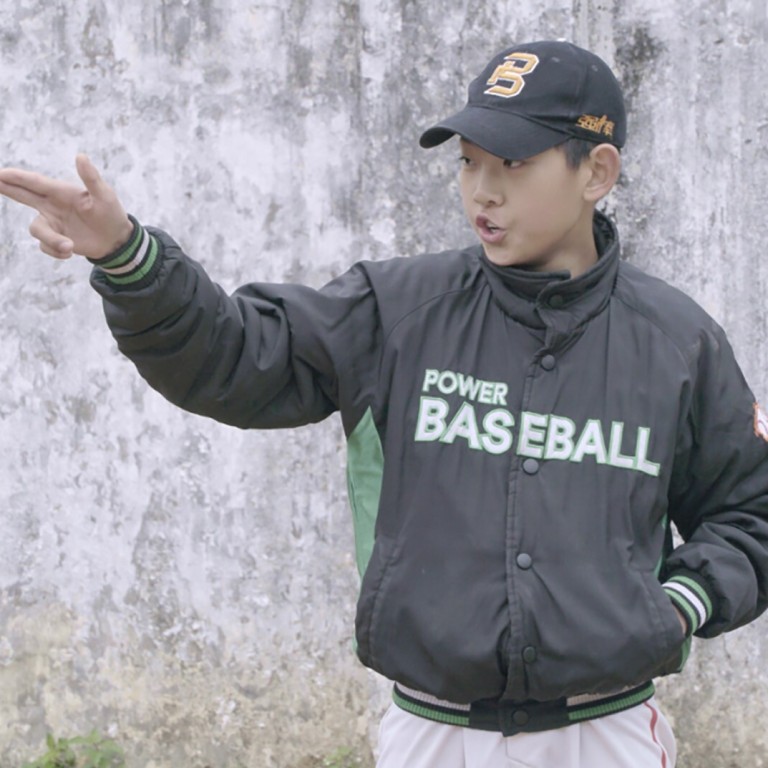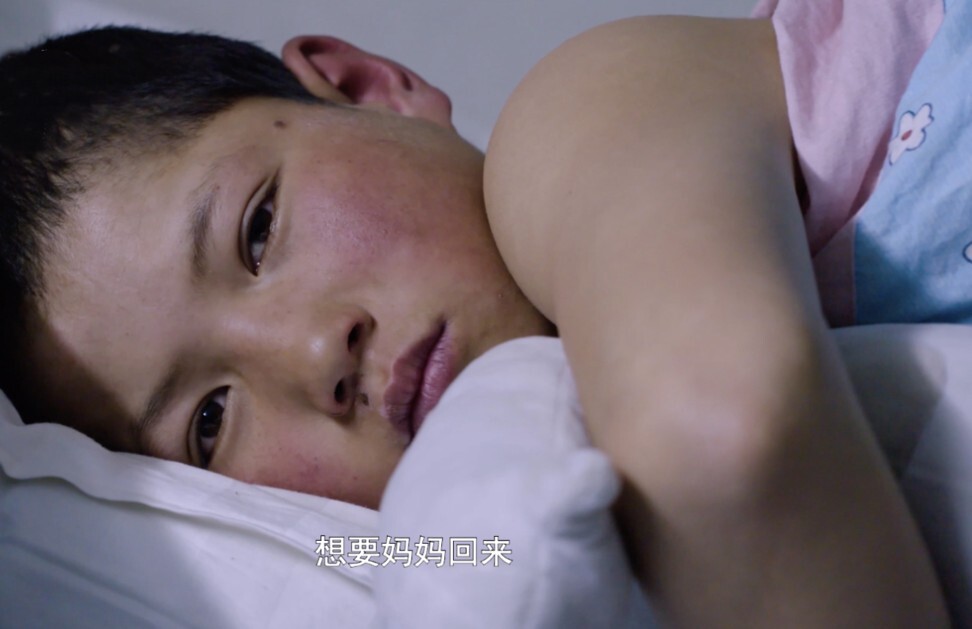
Film that shows plight of ‘left-behind’ children in China earns plaudits
- The documentary Tough Out follows the efforts of a group of boys as they learn baseball in Beijing and form a team that takes on the United States
- Their struggles highlight the plight of the millions of children left orphaned or whose parents leave them in the countryside as they toil in cities
The battle being fought by some of China’s “left-behind” children to build a better future is at the heart of a new documentary that has won plaudits for its inspiring story.
The documentary – Tough Out – follows the efforts of a group of seven- to 12-year-olds who are swinging for a better life via the sport of baseball. The group’s efforts are aided by former baseball star Sun Lingfeng.
Directed by young filmmaker Xu Huijing, Tough Out was released last week. The production has already won recognition, being named the best documentary in this year’s First International Film Festival – a national platform for emerging filmmakers.
The film focuses on a small group of boys as a way to highlight the plight of the seven million children in China left behind in rural communities by their parents, who work in far-off cities.

Officially “left-behind” children have, since 2016, been defined as those under 16 whose parents have both moved away for work, or have one parent absent but the other is unable to care for them. Some members of the baseball team have it even tougher, with their parents dead, missing or in prison.
The documentary recounts how children from across China gather on the outskirts of Beijing to play a niche sport under a charity programme launched by Sun, a former captain of China’s men’s baseball team.
Class debate over ‘left-behind’ child’s choice to study archaeology
They go from knowing zero about the sport to representing Asia Pacific in competition against the United States – a game they lose.
Sun told the Post: “The thing that impressed me the most was that Ma Hu [the main character in the film] ate so much he vomited every day after he arrived at our baseball base. We asked him why, and he said he didn‘t know whether he would still be full for the next meal.
“What really affects a person’s growth is their environment. We have to find a way to get children out of their previous living environment and put them in an education system that is truly conducive to their growth.”
It’s especially hard for migrant workers in megacities like Beijing and Shanghai to find their kids a place at school. So this leads to the absence of parents for their children in a stage of life when they need them most
The spotlight Xu brings to this hidden world of poverty – and the difficulties “left-behind” children face in trying to better their futures – is touching the hearts of the documentary’s audience.
It gained a rating of 8.7 on China’s most popular film review site, Douban, one of the highest so far this year, following its cinematic release on December 11.
“I thought it was a baseball-themed documentary about encouragement before seeing it, but realised afterwards it was one telling of the living conditions of poor Chinese children instead,” wrote one user, known as “Thanks for your fish”, on Douban.
‘Left behind’ sisters cry when parents leave home to go to work
“That a group of children who were abandoned by their families and this society devoted themselves to a sport that is not so popular in China felt tragic. They have to go on fighting, even if nothing will change in the future,” said the same Douban user.
In a speech last month Xu said he wanted the film to give such children strength to face any situation they face.
“I really hope this film can have a positive influence on them. I hope they can be professional players in the future, or study in a sports college, or become a good coach, having the ability to change their fates,” he said on Yixi, a TED-like online lecture platform.

The children who appeared in Tough Out are still playing baseball under the charity project in Beijing, named Qiangbang Angels Baseball Base.
A large number of rural children in China have been neglected by their parents in recent decades as rapid economic growth drew rural labourers seeking higher pay to urban areas.
In 2016, the government changed how “left-behind” children were defined. Previously it counted all those under 18 years old, and the total was thought to exceed 60 million.
Left-behind children a poignant reminder of the cost of China’s development
Using the post-2016 definition, there were about seven million “left-behind” children in 2018, the Ministry of Civil Affairs said.
Professor Zheng Fengtian, who specialises in rural development at Renmin University in Beijing, said nearly 300 million rural residents in China work in cities.
Many of them have to leave children with their grandparents or other relatives in their hometowns because most cities don’t provide enough education resources for migrant workers’ children.

“It’s especially hard for migrant workers in megacities like Beijing and Shanghai to find their kids a place at school. So this leads to the absence of parents for their children in a stage of life when they need them most,” he said.
Those children are more likely to be abused. According to data from the Supreme People’s Procuratorate in 2017, over seven per cent of the victims of crimes against children were those left behind by their parents.
At the same time, they are more prone to breaking the law, many local authorities have found. In Macheng, Hubei province, for example, over 80 per cent of juvenile offenders were from such families in 2017 and 2016, its court said. This is an increase from 75 per cent in 2015 and 72 per cent in 2014.
Additional reporting by Elsie Duan

